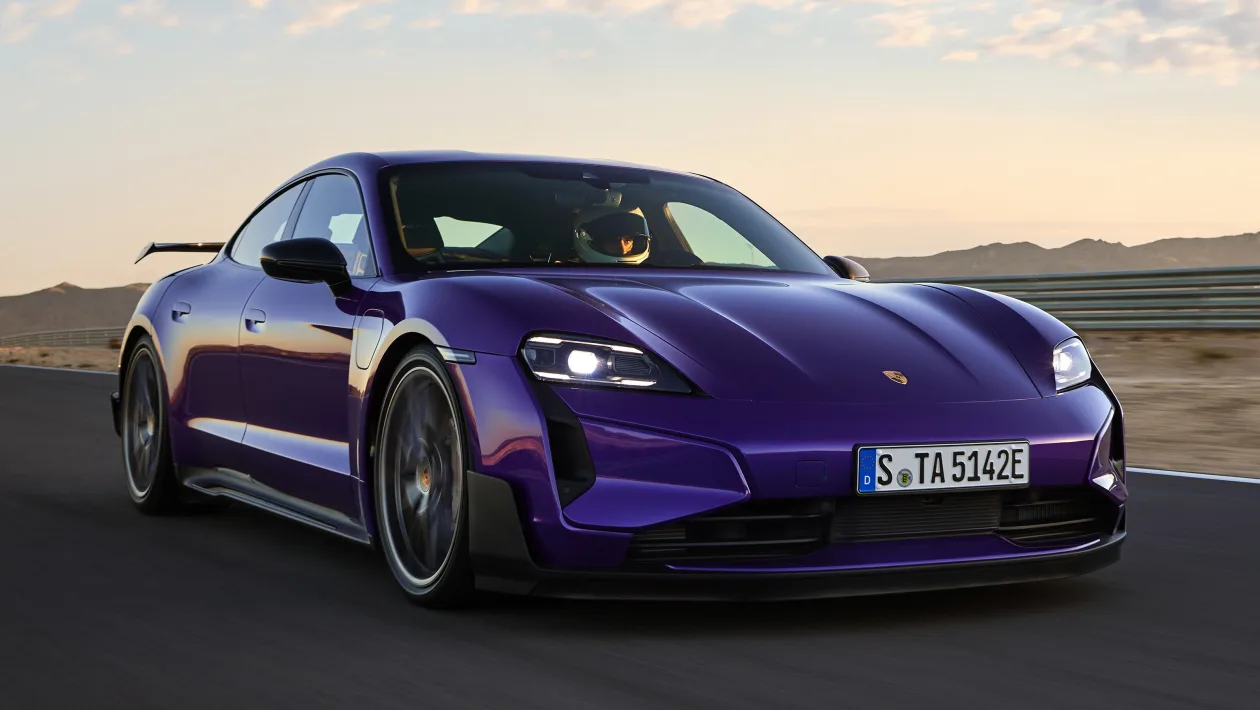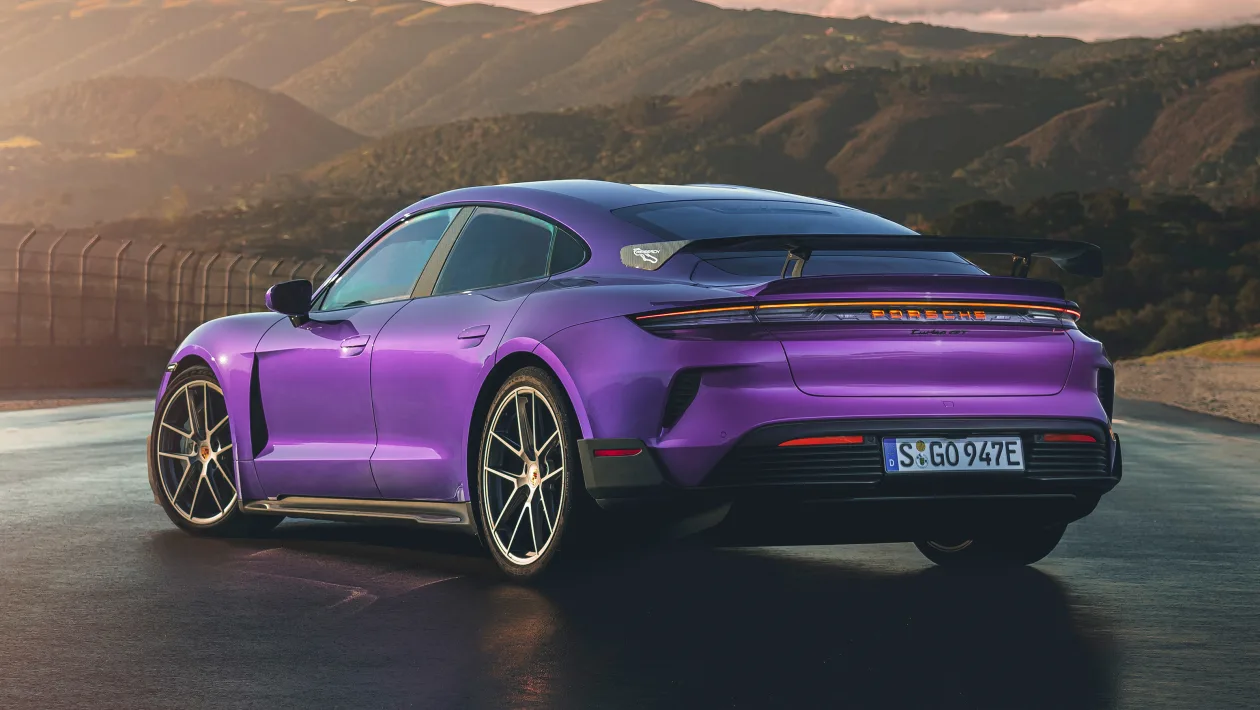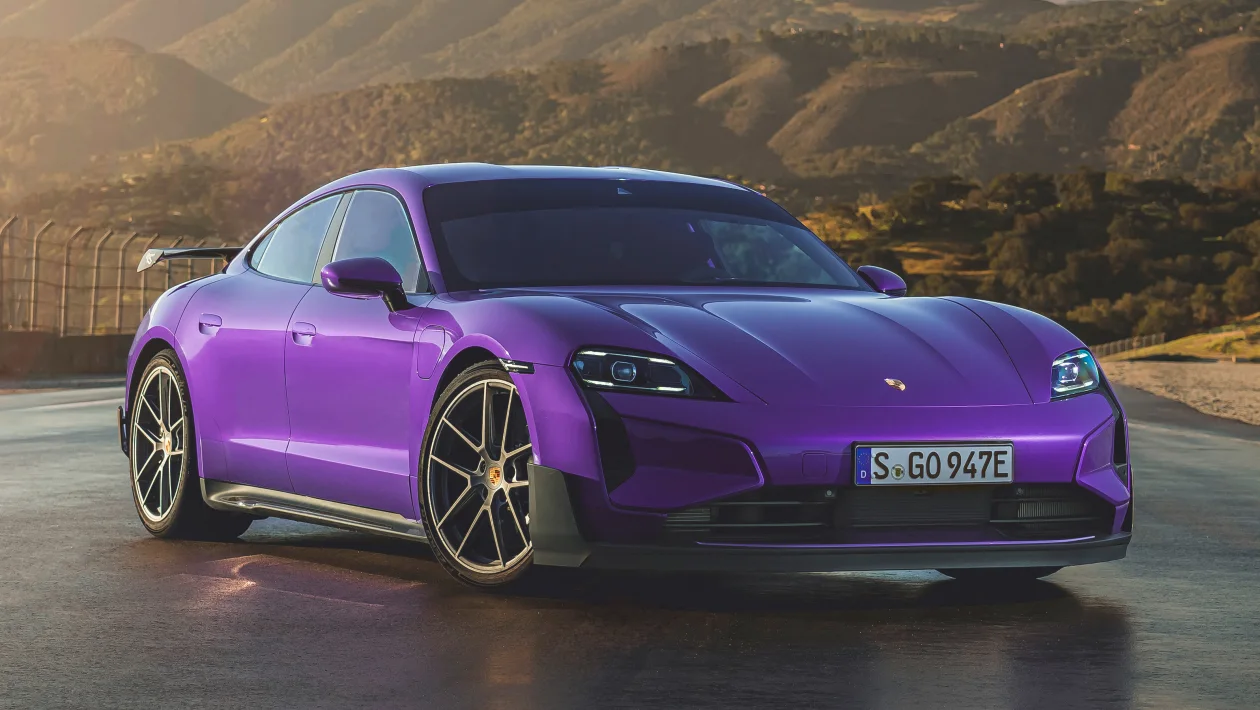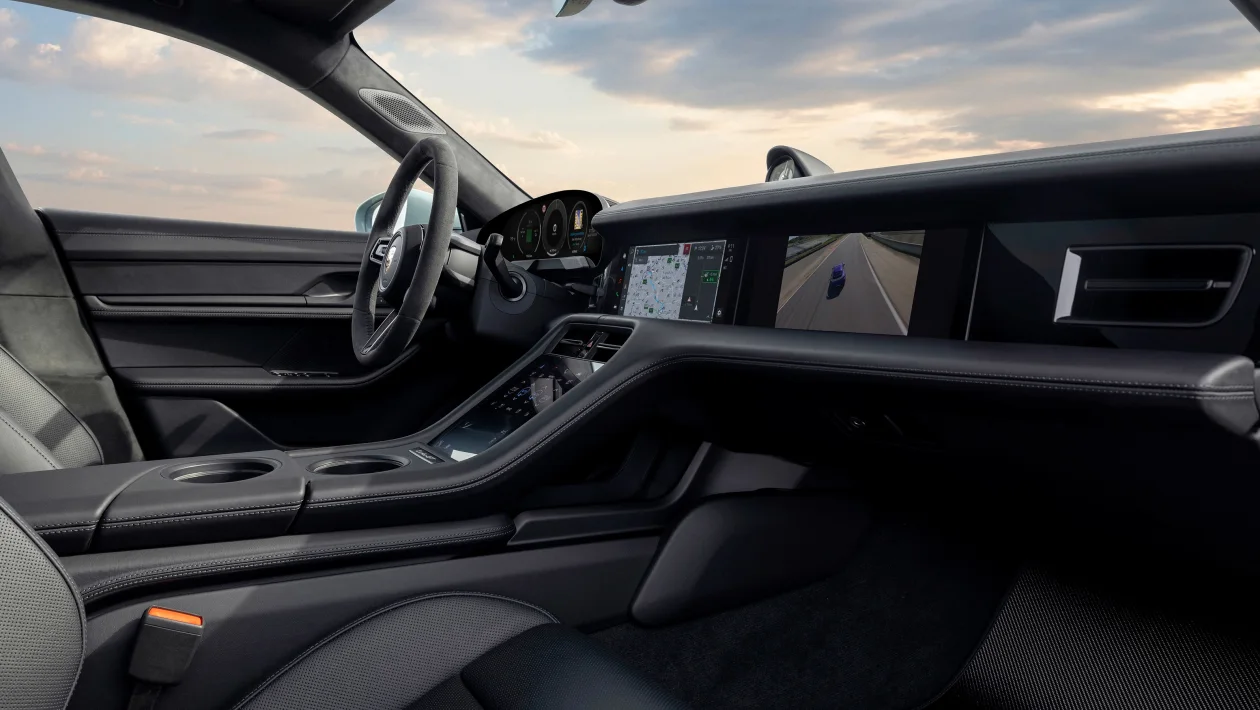The Porsche Taycan Turbo GT is the most powerful series-production car the brand has ever made, and has already set record laps at Laguna Seca and the Nürburgring.
Porsche has taken the electric sports sedan game to the next level with the new Porsche Taycan Turbo GT: a hardcore, track-focused version capable of accelerating from 0-100 km/h in just 2.2 seconds.
The caveat to this outstanding performance is that the headline figure applies to the optional Weissach package, which sacrifices the rear seats to enhance the power-to-weight ratio. However, efforts to make the car lighter go well beyond that – which we’ll get to in a moment.
The Turbo GT comes with four seats as standard, and ordinarily, its two electric motors produce 580kW. When launch control is activated, they deliver a colossal peak output of 815kW and 1340 Nm of torque.
The standard Turbo GT sprints to 100 km/h in 2.3 seconds, already one-tenth of a second quicker than the 712 kW Taycan Turbo S. The difference between the Turbo S and Turbo GT models is even greater when measuring from 0-200 km/h, as the new flagship completes the sprint in 6.6 seconds – or 6.4 seconds with the Weissach package fitted. That’s up to 1.3 seconds quicker than the Turbo S. Top speed in the standard Taycan Turbo GT stands at 290 km/h, while Weissach-equipped cars have a V-max of 305 km/h.
If you’re already on the move, the Taycan Turbo GT features an ‘Attack Mode’ that makes up to 700kW available for a 10-second burst, similar to the ‘push-to-pass’ function in other Taycan variants. Attack Mode can be activated with a button on the steering wheel or using the right-hand paddle behind it. The latter function was apparently added to make it easier for drivers on track to activate Attack Mode when wearing driving gloves.
The Turbo GT benefits from the upgraded powertrain recently added to the Taycan, including a new motor for the rear axle that’s capable of producing more power. Porsche has also strengthened the two-speed transmission and improved the gear ratio on said motor to stand up to the Turbo GT’s enormous torque figure. Power comes from the new 105kWh ‘Performance Battery Plus,’ providing an official range of up to 555km.
The GT is up to 75 kg lighter than the Turbo S as well, thanks in part to the exclusive 21-inch forged wheels that have ‘relief-milled’ spokes, saving weight and allowing for better ventilation for the ceramic brakes.
Speaking of which, the Turbo GT’s braking system is based on Porsche’s Ceramic Composite Brake (PCCB), but changes to the brake disc chamber and the brake caliper housing have shaved off more than 2 kg. The added benefit being less unsprung and rotating mass.
Additional weight reduction measures include the use of carbon fiber for select components like B-pillar trim, a set of carbon-fiber reinforced plastic (CFRP) bucket seats, and removal of the soft-closing function on the Taycan’s bootlid.
The Taycan’s Active Ride suspension has been tuned differently for the Turbo GT too. Also new is the Turbo GT’s front splitter with aeroblades, while the rear gets an adaptive spoiler that has an added Gurney flap to increase downforce further.
The Weissach package shaves another 70 kg off the standard Turbo GT, in part by replacing the rear seats with carbon cladding and a storage compartment. The traditional analogue clock from the Sport Chrono pack has also been removed, along with the floor mats and some of the insulation materials. Further weight saving can be had with special sound and heat-insulating glass, and the removal of the rear speakers.
Additional aerodynamic aids on Weissach models include a new front diffuser, air deflector elements underneath the body, and the large fixed rear wing that work together to create up to 220 kg of downforce.
If you have doubts about the Turbo GT’s capabilities on track, Porsche has revealed the Weissach car recently lapped the Laguna Seca race track in 1 minute and 28.87 seconds – the fastest time of any series-production EV. A pre-production version of this same model also set a new class record on the Nürburgring Nordschleife, going around in 7 minutes and 7.55 seconds – 26 seconds faster than a Taycan Turbo S did in 2022.







